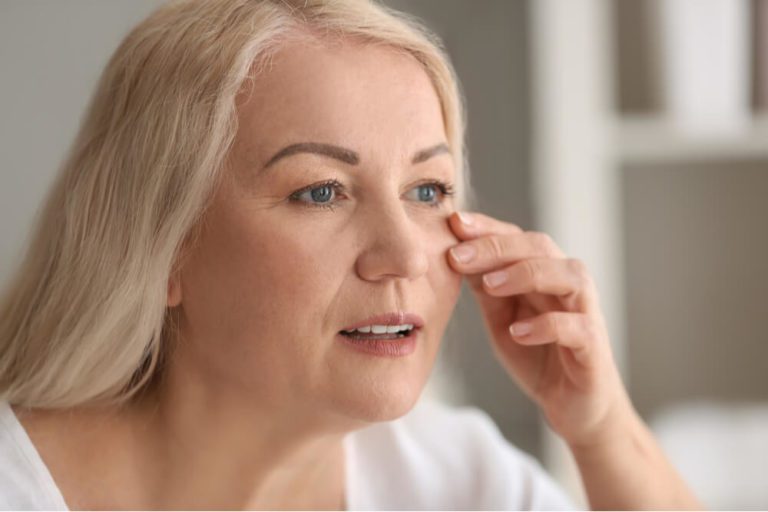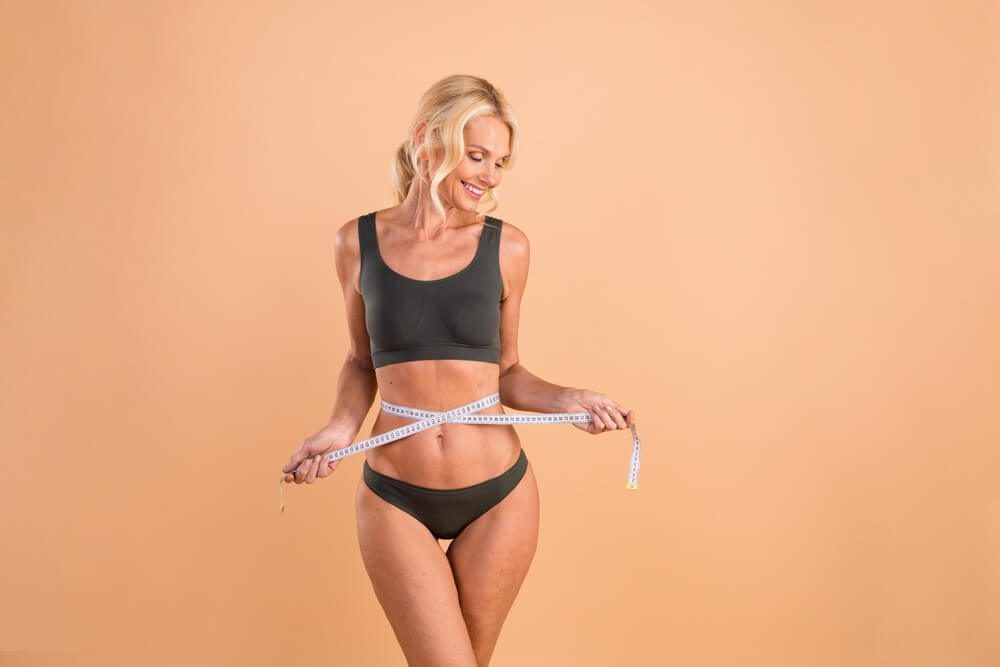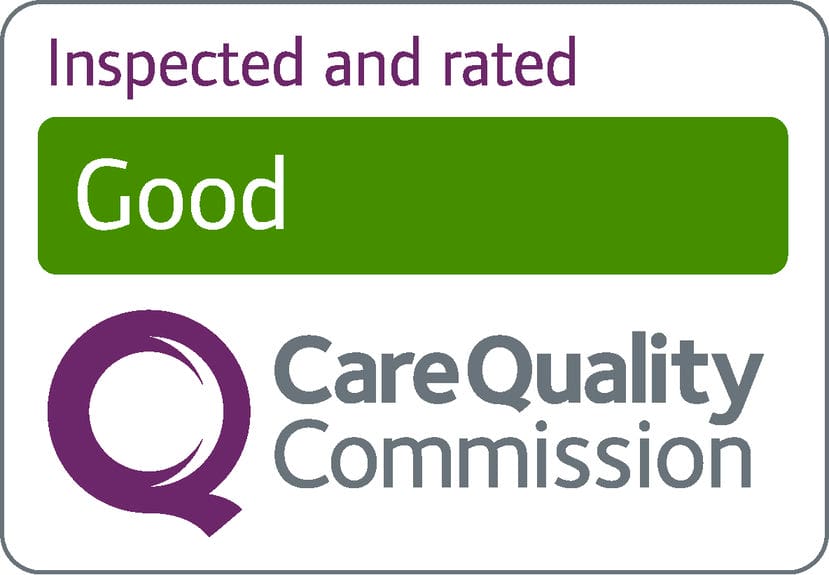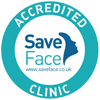What is blemish-prone skin?
Blemish prone skin will appear oily, shiny, and is more susceptible to blackheads, pimples or whiteheads and, in some cases, cysts. All of us will get the odd blackhead or spot occasionally, however, these symptoms are classified as ‘acne’ if they are persistent, even if they are not severe.
The body naturally produces oil (sebum) to keep the skin moisturised and protected from microorganisms and other contaminants. However, an excess of it can cause clogged pores, inflammation, spots and blemishes.
Other causes of blemish-prone skin can be due to an increased production of skin cells which causes the sebaceous gland follicles to become blocked. These blocked follicles can then become a breeding ground for bacteria and the body’s natural immune response causes the follicles to become inflamed. Puberty, pregnancy and menopause hormones can also stimulate this same response. There is usually more than one contributing factor causing your acne.
7 top tips for looking after your blemish-prone skin
1. Cleanse daily, but not too much!
It is untrue that acne is caused by being unclean, however, keeping the skin clean with the right daily facial cleanser can help decrease blemishes and reduce the severity of future breakouts. Often we recommend a cleanser that contains mild salicylic acid which is oil-soluble, meaning it can penetrate deeper into oily skin, unclogging pores, removing excess oil and calming inflammation.
It’s also very important though not to strip the skin of oils by washing too much because that will make the problem worse by stimulating your skin to produce more oil to replace that which has been stripped; your practitioner will give you advice specific to you on the frequency of use. We’ve all got bacteria on our skin so please remember this is nothing to do with how frequently we wash.
2. Use mineral-based makeups
Sometimes makeup can make blemishes worse, so don’t try and cover them up with thick makeup as this can quickly become a vicious cycle – it’s a much better idea to ask for help with treating them. And if you want to try and cover them up, make sure you use mineral-based makeups which aren’t too heavy and will enable your skin to breathe. Whenever you can, try to go makeup-free to give your skin a rest.
3. Use a Facial Oil
If you already have oily skin you may think that applying facial oil is going to make things worse. However, it all depends on the type of facial oil as some work best for dry skin and others work best for oily skin; they are very different in thickness and function and should be used for a reason other than simply moisturising. We often recommend non-comedogenic products which contain key ingredients for acne, such as retinol, So don’t be concerned if that is the case with you as they will be designed specifically for blemish-prone skin. We can recommend the best oil for your skin type, if appropriate, during a skin consultation.
4. Use an acne friendly moisturiser
Skin hydration and moisturisation should always be a part of your skincare routine whether you have blemish-prone skin or not. This is because when your skin becomes dry, it naturally produces more oil. The right oil-free moisturiser can help balance your skin’s hydration and, if it contains the correct ingredients, soothe any inflamed areas and actively treat your acne. It is worth knowing that facial sun cream isn’t something that has to be thick and oily, possibly blocking your skin and causing breakouts; there are sun creams that are specifically designed for facial skin and skin problems.
5. Avoid popping spots
It’s easier said than done, but it’s so important that you don’t pop your blemishes or touch your face. Touching your blemish-prone skin can lead to more acne and infection. We recommend seeking acne treatments to improve the cause(s) of your acne. Oral and topical medication can help but it’s best to speak to a dermatologist to know which treatment is best for you. There are also safe and effective treatments that you can have within a dermatology clinic, such as Isolaz, Regenlite and skin peels, which help to remove the debris within your pores, reduce the bacteria colonising in the areas of acne, improve painful inflammation, reduce oil production and calm the redness often associated with acne.
6. Shower after exercise
Always shower after exercise, and make sure you wash hair gels and products out thoroughly and then rinse your skin. These products can stick to your skin – usually, your back, chest or face blocking the pores which in turn encourages spots.
7. Don’t be blinded by marketing messages
It’s easy to buy products you’ve seen in an advert which guarantees all sorts of miracles for your skin. However, their promises may not always follow through.
When finding the right products for you, look at the active ingredients and try to find out the volume of those ingredients to assess how effective it could be. Be aware that anything you buy over the counter will not be as potent as the products you buy in our clinic. Our clients are often pleasantly surprised that our potent products are similar in price to those you can buy on the high street. In the main, the reason for this is that those companies that produce clinical products have spent their money on the research and development of the ingredients and products rather than expensive marketing campaigns and celebrity endorsement.
It’s also good to know that what’s right for you isn’t going to be right for others, so don’t use the same product as your friend and expect it to work in the same way.
As a final point, always remember that you don’t have to suffer. If you can’t get your blemishes and acne under control, then you need to seek help from a skin care specialist in order to prevent scarring. We’d love to speak to you and help you manage your blemishes. Get in touch with us now or book a skin consultation.
Do you have any questions about acne treatment?
Disclaimer: This blog is not to be used for diagnostic purposes. We are all unique which means that our results, recovery and suitability for any type of treatment will vary. Always seek the advice of a professional should you have any health or cosmetic concerns or to discuss treatments specifically for you.





